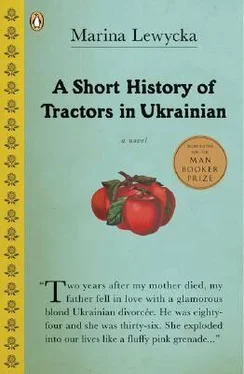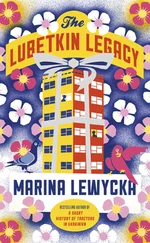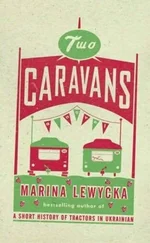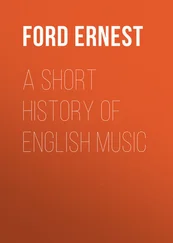The retribution of Stalin was ruthless. Hunger was the tool he used. In› 1932 the entire harvest of Ukraina was seized and transported to Moscow and Leningrad to feed the proletariat in the factories-how else was the revolution to be sustained? Butter and grain from Ukraina were on sale in Paris and Berlin, and well-meaning people in the West marvelled at this miracle of Soviet productivity. But in Ukrainian villages the people starved .
This is the great unrecorded tragedy of our history, which only now is coming to light …
He stops, and gathers together his papers quietly. His glasses are perched low on his nose, the lenses so thick I can hardly see his eyes, but I fancy I catch a glint of tears. In the silence that follows, I can hear Valentina still chatting on the phone next door, and a faint beat of music corning from Stanislav’s room. In the distance, the clock on the village church strikes seven.
“Well done, Nikolai,” Mike applauds. “Stalin had a lot to answer for.”
“Well done, Pappa.” My applause is more grudging than Mike’s. All this Ukrainian nationalism bothers me-it seems outdated and irrelevant. Peasants in the fields, folk-songs at harvest, the motherland: what has all this got to do with me? I am a post-modern woman. I know about structuralism. I have a husband who cooks polenta. So why do I feel this unexpected emotional tug?
The back door clicks. Anna has come back. Valentina finishes her telephone conversation, and slips in to join in the applause, tapping her pearl-tipped fingertips delicately together. She smiles with satisfaction, as though she is personally responsible for this literary masterpiece, and kisses him on the nose. “ Holubchik! ” Little pigeon. My father glows.
Then it’s time for us to go home. We all shake hands and put on an unconvincing display of cheek-pecking. The visit is deemed a success.
“So what was she like?” my sister asks, over the phone.
I describe the mini-skirt, the hair, the make-up. My tone is neutral, disciplined.
“Oh my God! I knew it!” Vera cries.
(And how I am enjoying my bitch-fest! What has happened to me? I used to be a feminist. Now I seem to be turning into Mrs Daily Mail .)
I tell her about the washing-up gloves, the pink-pearl-tipped fingers.
“Yes, Yes. I see everything.” Her voice wobbles with rage.
Our mother’s hands were brown and rough from gardening and cooking. “I can see what kind of woman she is. He has married a tart!” (I didn’t say it!)
“But Vera, you can’t judge someone by how they dress.” (Ha! Look how rational and grown up I am!) “Anyway, that style of dress doesn’t mean the same in Ukraine -it signifies a rejection of the peasant past, that’s all.”
“Nadia, how can you be so naive?”
“Not at all, Vera. I had a Ukrainian sociology professor visiting last year and she looked exactly like that. And she was upset that most of my friends wore no make-up and went around in jeans or tracksuit bottoms, when she yearned for designer clothes. She said it was a betrayal of womanliness.”
“Well, yes.”
My sister would rather be dead than be seen in jeans (apart from designer jeans of course) or tracksuit bottoms. Then again, she would rather be dead than be seen in high-heeled peep-toe mules and a denim mini-skirt.
I tell her about the pre-cooked chilled meal. We are on common ground here. “The sad thing is, he probably doesn’t notice the difference,” she murmurs. “Poor Mother.”
The first crisis of their marriage comes shortly after our visit. Valentina is demanding a new car-not just any old car, either. Must be good car. Must be Mercedes or Jaguar at least. BMW is OK. No Ford please. The car will be used to drive Stanislav to his posh school, where other children are driven in Saabs and Range Rovers. My father has seen a second-hand Ford Fiesta in good condition, which he can afford. Valentina will not tolerate a Ford Fiesta. She will not even tolerate a Ford Escort. There is a blazing row.
“Tell me what you think, Nadezhda.” He phones me in an agitated state.
“I think the Ford Fiesta sounds just right.” (I drive a Ford Escort.)
“But she will not tolerate it.”
“Well, do what you like.” He will anyway.
My father has a bit of money in the bank. It is his Pensioners Bond, which matures in three years’ time, but what the hell, the lady wants a new car and he wants to be generous. They settle on an old Rover, large enough to satisfy Valentina’s aspirations, old enough for my father to afford. He cashes in his Pensioners Bond and gives most of it to Valentina for the car. He gives the £200 that is left to my daughter Anna, who has just passed her ‘A’ levels with flying colours, to help her on her way to university. I feel bad about this, but not too bad. I tell myself that if he didn’t give it to Anna for university, he would only give it to Valentina for a Mercedes.
“It is to make up the difference from the codicil,” he says, “this money will not be for Vera’s daughters, only for Anna.”
I am uneasy, because I know Big Sister will hit the roof. But I want revenge for the codicil.
“That’s great, Pappa. She’ll need it when she goes to university.”
Now he is spent up-he has no money left.
Anna is thrilled when I tell her about her grandfather’s gift.
“Oh! He’s so cute. I wonder if he gave some to Alice and Lexy when they went to uni?”
“I expect so.”
Valentina is delighted with the Rover. It is sleek, shiny, metallic green in colour, with a 3-litre engine, leather seats that smell of expensive cigars, a walnut dashboard and 186,000 miles on the clock. They ride around town and park up beside the Saabs and the Range Rovers outside Stanislav’s school. Valentina holds an international driver’s licence issued in Ternopil, which is valid for a year. She has never taken a driving test, says my father, but she paid for the licence in pork cutlets from her mother’s smallholding. They go to visit the Zadchuks and her friend Charlotte, and the uncle in Selby. Then the car breaks down. The dutch is shot. My father telephones.
“Nadezhda, please will you lend me a hundred pounds for repairs. Until I get my pension.”
“Pappa,” I say, “you should have bought the Ford Fiesta.”
I send him a cheque.
Then he phones my sister. She phones me.
“What’s going on with this car?”
“I don’t know.”
“He wanted to borrow a hundred pounds to mend the brakes. I said to him, can’t Valentina pay for it out of her earnings? She’s earning enough.”
“So what did he say?”
“He won’t hear of it. He’s afraid to ask her. He says she needs to send money back to Ukraine for her sick mother. Can you imagine.” Her voice is crisp with irritation. “Each time I criticise her he just springs to her defence.”
“Maybe he still loves her.” (I am still a romantic.)
“Yes, I suppose he does. I suppose he does.” She sighs a worldly sigh. “Men are so stupid.”
“Mrs Zadchuk told her it was the husband’s duty to pay for the wife’s car.”
“Duty? How lovely! How quaint! He told you that?”
“He asked me what I thought. Apparently being a feminist makes me an authority on the rights of wives.” I’m not sure what my sister thinks of feminism.
“Our mother never liked the Zadchuks, did she?” Vera muses.
“I think it’s his pride. He can’t ask a woman for money. He thinks the man should be the provider.”
“He’s just asked you and me, Nadezhda.”
“But we’re not proper women, are we?”
Mike rings him up. They have a long conversation about the merits and drawbacks of hydraulic braking systems. They are on the phone for fifty minutes. Mike is silent most of the time, but occasionally he says, “Mmm. Mmm.”
Читать дальше












